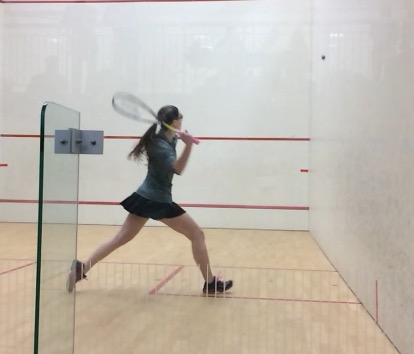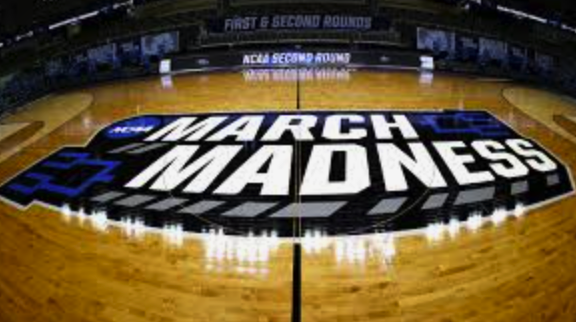Westminster squash thrives regionally and nationally

In a list of the 10 healthiest sports, Forbes did not name swimming or running to the first spot but instead crowned squash the sport with the most health benefits.
“It’s [a] different [sport] in that it really takes a level of mental engagement with what’s going on,” said senior Benjamin Greenberg. “A lot of sports have that physical, competitive component, but there really is a mental aspect in the game that’s hard to find as much in other sports.”
Westminster’s girls squash team has only been in existence for five years, and the sport is still relatively unknown in the South.
“I’d say it’s like how lacrosse was several years ago. It’s a growing sport in the South,” said senior Will Grady, varsity squash captain. “But it’s definitely not as popular as it is up North. Currently Westminster’s the only school south of Charleston that has squash.”
However, squash’s decreased popularity in the South also sets Westminster’s teams apart from the rest.
“Our chant is ‘Dirty South’ because we come from the South. We’re usually the southernmost team at whatever tournament we go to,” said Greenberg. “It’s kind of unique being a Southern team in that way. It sort of distinguishes us from the rest of the competition.”
Squash as a sport is usually introduced to junior high students during a P.E. unit. Gear used includes a racket that is a little lighter than a tennis racket, protective eyewear, and special court shoes with a non-marking sole.
“It’s much like racquetball,” said Greenberg. “You take turns striking a ball against a front wall and you win if the ball bounces twice before your opponent can hit it, or if your opponent hits the ball out.”
As simple as the game seems, the varsity team has a rigorous practice schedule.
“Varsity practices four times a week, Monday through Thursday. Occasionally we’ll have practice on Fridays if we think we really need it,” said Grady. “The first hour, we have the bottom 15 people on the combined boys and girls ladder practice while the top 15 are doing conditioning. After the first hour we go on court and the bottom 15 go condition.”
However, a portion of the team also practices extra outside of school.
“People who practice in the offseason primarily go down to Midtown Athletic Club, where our actual coach is, and hit there with people,” said junior and varsity captain Pierson Klein. “Those are the people who play year-round.”
Westminster’s squash team has three coaches: Rick Byrd, Liza Cowan, and Tom Rumpler.
“[Rumpler] is a squash pro at Midtown Athletic Club. He’s been the pro there for [about] 35 years, played in college and was nationally known, and he owns a court-building company for squash courts,” said Grady. “He’s been involved in squash basically his entire life.”
Though Rumpler does not work at Westminster, he is a vital addition to the team.
“He’s coached people who have been Ivy player of the year – girls who have been really highly nationally ranked,” said senior and varsity captain Priya Sinha. “He’s the one who helps us with our skills the most.”
Besides practices, some squash players also take lessons.
“For lessons for my coach, it’s an hour and you pretty much do drills the whole time and work on specific skills that you really need to focus on and strategies,” said Klein. “And you play challenge games that have certain rules changed.”
One of the biggest problems that the team has, though, is that many of the players do not play outside of the squash season.
“The problem is they’ll only play during the season and they don’t get better. They leave the season and they don’t pick up a racket until next season,” said Grady. “So our biggest problem is getting people to play and then to keep playing after the season is over. After this year, that’s going to be something we’ll really struggle with because we’re graduating five seniors.”
Westminster’s squash teams usually play three tournaments the entire season: one in Pennsylvania, an intercollegiate tournament hosted at Westminster, and nationals. During the intercollegiate tournament, Westminster hosts a number of colleges, including Duke, Northwestern, Vanderbilt, and the College of Charleston.
“It’s called the Jester’s Tournament,” said Sinha. “Sometimes it’s intimidating to play college boys, but it’s good practice for nationals to get over the fear of playing a match.”
Tournaments are highly structured around a ranking system of the players, called a “ladder.”
“We have a combined ladder of guys and girls, and we have a guys ladder and a girls ladder,” said Grady. “About maybe twice a week or three times a week we’ll have challenge matches, where people from lower in the ladder can challenge people above them.”
During tournaments, teams play against each other against their own rankings, so Westminster’s number one plays against another school’s number one.
“Usually before the match against the other team, everybody gets on the court and there’s a ceremony called ‘Introductions,’ where teams stand on opposing walls and the captain calls up each member of their team to shake hands with their opponent,” said Greenberg. “After introductions, we’ll say a few words and then hop on the court.”
Tournaments for Westminster’s team are also unique in that they must fly out to different states instead of traveling around the Southeast.
“We go to nationals instead of state, so we get to see teams from all around the country,” said Sinha. “It’s cool to be the only squash team and be able to see every other part of the country, not just Georgia.”
Westminster’s team is hopeful about their season’s prospects.
“I think we have a pretty good shot at doing well at nationals. It’s really good that people have been through this whole process before – because [nationals] is a ton for people who you’ve never seen before or never played against,” said Klein. “We’ve got lots of people who have good skill sets and have been playing year-round, so I’m pretty happy about that.”
Regardless of the team’s end results, the members play squash for a love of the game and appreciate the distinct characteristics of the sport.
“It’s a chance to be competitive in a really cool environment. It’s affectionately known as ‘chess at 150 miles an hour,’” said Greenberg. “It’s very fast-paced and you have to think quickly in order to be able to win. It takes physical, mental, and competitive toughness.”


